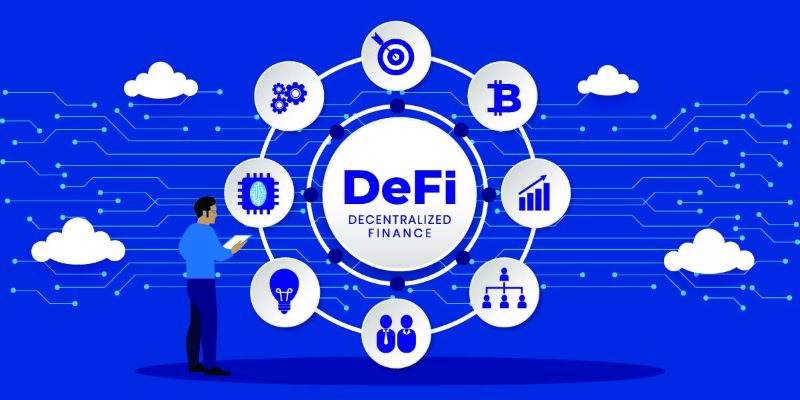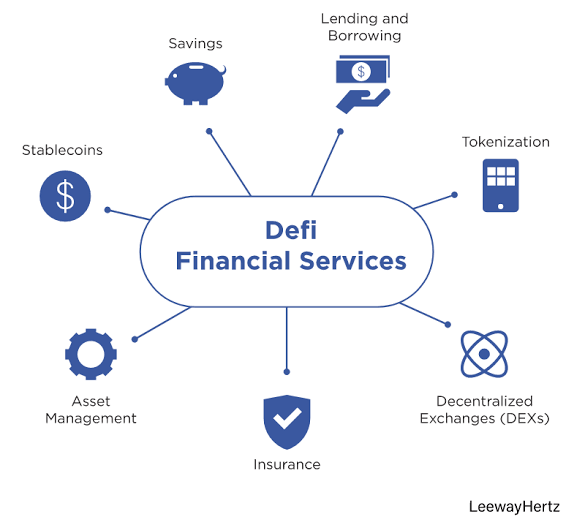Diving into Security challenges in DeFi applications can feel like steering a ship through a storm. I’ve seen bright ideas sink fast. Why? Because hackers love fresh, risky waters. And DeFi’s huge money pool? It’s hacker bait. Let’s get real about DeFi threats. From smart contract holes to hacking messes, I’ll show you how to audit like a pro, beef up your cybersecurity, and sail through DeFi’s rough tides with your treasure chest safe. Join me, and let’s navigate these uncharted waters together. Let’s turn the tide on DeFi security and ensure our digital gold doesn’t slip away into the deep blue of cyber threats.
Understanding the Landscape of DeFi Security Threats
The Pervasiveness of Smart Contract Vulnerabilities
Smart contract vulnerabilities are a big worry in DeFi. They attract hackers like bees to honey. Think of smart contracts like vaults in our banks. Now, imagine if some of these vaults had weak locks. That’s how hackers see these weak spots in DeFi smart contracts. We find these issues often because writing flawless code is hard. Even the smartest coders can miss a small error that hackers can use to break in.
Testing helps catch errors before they cause harm. A smart contract audit is a thorough check-up to find these weak locks. Audit firms are like health inspectors for DeFi protocols. They poke and prod smart contracts to make sure they are strong. This keeps our funds safe in the DeFi space.
Avoiding loss of funds in DeFi is key. The audits help us do this. Just like wearing a seatbelt in a car helps us stay safe, audits keep our money safe. They are not fun, but they are necessary.
The Aftermath of Hacking Incidents in DeFi
Hacking incidents in DeFi can be painful. When a DeFi project gets hacked, it’s like a storm hitting a town. Everyone feels the impact. Some lose their money, which is the hardest part. After a hack, trust drops and cleaning up takes time and effort.
DeFi security threats don’t end with the hack. There’s a long way back to feeling safe again. After a hack, the whole community looks for ways to prevent another one. This includes better cybersecurity measures for DeFi. It’s like fixing and building stronger houses after a storm.
Decentralized finance insurance can help cover our losses when hacks occur. It’s like having insurance for our cars. We hope we never need it. But it’s there if we do.
Understanding these risks helps us guard against them. It’s like knowing the roads we drive on. When we know where the potholes are, we can avoid them. This keeps everyone in DeFi a little bit safer on their journey.
Essential Audit Practices for DeFi Protocols
Ensuring Code Integrity through Rigorous Audits
In the world of DeFi, nothing scares us more than the idea of waking up to the next big hack. We see terms like “DeFi security threats” and our mind jumps to worst-case scenarios where fraudsters make off with millions. But here’s the deal: rigorous audits of DeFi protocols are our first line of defense against such nightmares. They’re like health check-ups for the code that runs DeFi apps.
Think about it. Smart contract vulnerabilities are like open doors for hackers. Every line of code needs a keen eye to spot any flaws. Security experts comb through the smart contracts, testing for weaknesses and sealing possible entry points before they’re exploited. This is no easy feat—coding smart contracts safely is a skill honed over time.
Now, what happens if a hacker does break through? Hacking incidents in DeFi can cause a massive loss of funds, hurting everyone who uses these platforms. That is why we push for audits at every development stage. By catching code exploits early, we shield everyone’s digital assets from harm.
How exactly do we do that, though? Think about your house. You wouldn’t leave your doors open when you head out, right? Similarly, securing liquidity pools and your wallet in DeFi calls for smart contracts written like fortresses—only way tougher. Smart contract audit firms jump into the scene here. They hack at the code—ethically, of course—trying to break it to make it unbreakable in the future.
But audits aren’t just about security. They’re about trust, too. When you know a protocol has been tested thoroughly, you can sleep a little better at night, right? And trust me, we need that sleep.
Balancing Innovation with DeFi Regulatory Compliance
Here’s a spicy one—the tightrope walk of innovation versus rules. Yep, DeFi regulatory compliance is a biggie. We can’t just build cool financial tools without following the rules. Anti-money laundering (AML) and Know Your Customer (KYC) laws are like referees in a game. They’re there to keep things fair and safe.
Sure, DeFi was born to be a bit of a rebel—fast, free, and without borders. But the reality? We can’t ignore the rules. These laws help us fight off the baddies like money launderers and ensure we’re not aiding any shady business.
And here’s the kicker—when we stick to the rules, we protect ourselves from those pesky regulatory fines or shutdowns. It’s a balance between keeping that DeFi spirit alive and not getting on the wrong side of the law.
In the end, the goal is simple. We want to ride the wave of DeFi innovation without being wiped out by a sneak attack from hackers or regulators. Through audits and compliance, we’re building a safer digital finance future—for everyone.
Implementing Robust Cybersecurity Measures in DeFi
Combating Fraudulent Activities: Rug Pulls and Flash Loan Attacks
DeFi security threats are out there, waiting to pounce on weak spots. Smart contract vulnerabilities are like open doors for thieves. They let hackers slip in quietly and grab your digital cash fast.
What’s a rug pull in crypto? It’s when developers pull the plug on a project. They take the money and run, leaving you with nothing. Flash loan attacks? Imagine borrowing a lot of crypto, messing with the market, and making a profit. All this, without a penny in your pocket to start with.
But don’t worry, you can fight back. Cybersecurity measures for DeFi start with smart contract audits. Think of it as a health check for your code. The experts look at everything, finding the gaps before the bad guys do. Then, they patch things up tight.
Picture DeFi like a fortress. You’re in charge of keeping the gold safe. Phishing attacks in digital assets are like the enemy’s spies. They trick the guards and get the keys. So, always be on guard. Teach your team how to spot these tricks and keep your fortress safe.
Secure smart contract development is a shield against these risks. During creation, developers must think like attackers. They ask, “Can someone break this? How?” It’s like building a lock that only you have the key to.
The Role of Secure Smart Contract Development in Mitigating Risks
Secure smart contract development is your safety net. It stops the bad things before they happen. Think of code exploits in decentralized finance like sneaky bugs in a game. They let players cheat. We don’t want that in DeFi. So we squash those bugs early, with lots of tests.
Smart contracts make deals without middlemen. But if there’s a slip-up in the code, it’s big trouble. Hackers can sneak in and drain funds from DeFi projects, just like pulling the plug on a bathtub.
What happens if there’s a loss of funds in DeFi? People get scared. They lose trust. But there’s a way to bring peace of mind. Decentralized finance insurance can step in like a safety net, catching you when you fall.
Impermanent loss prevention is part of secure smart contract development. It’s like making sure a ship is watertight before it sets sail. This keeps the value of your crypto safe, even when the market goes up and down like ocean waves.
To wrap up, secure smart contracts are the foundation. We build upon them with constant fraud detection in DeFi, guarding against fake moves and scams. It’s a brave new world, but safety comes first. By arming ourselves with knowledge and the right tools, we can navigate through these uncharted waters safely.
Operational Safeguards and Compliance in DeFi Ecosystems
Strengthening DeFi Applications against Economic and Privacy Attacks
DeFi dishes out fresh ways to bank and trade. Yet, we see more and more attacks. Bad guys can strike our money and our private details. We need shields up.
Economic attacks go after flaws in DeFi. Hackers play tricks with pricing or slip in bad code. They walk away with heaps of cash. It’s a mess.
How do you stop this? First, we must find the weak spots. We check DeFi apps with a fine-tooth comb. We fix the code before any villain can sneak in.
Privacy in DeFi is a big deal too. We keep our lives on the net. This means our secrets could spill if there’s a slip. We can’t let that happen.
A strong DeFi spot keeps eyes peeled for odd stuff. It’s like a guard dog that barks when prowlers lurk close. We must tighten our grip and watch over our data.
Cybersecurity measures for DeFi keep us safe. Think of it like a sturdy lock on your front door. It keeps the bad out and the good in.
Elevating Protocols with DeFi Regulatory Know-Your-Customer (KYC) and Anti-Money Laundering (AML) Compliance
Next up, we’ve got KYC and AML. These are rules that keep things clean. They help to make sure no one uses DeFi for the wrong reasons. It’s like a bouncer checking IDs.
DeFi wants to be free but also safe. KYC is how we know who’s who in DeFi. It stops folks from hiding when they do deals.
AML comes in to fight dirty money. It’s the net that catches bad cash on its way in. No one wants to swim in a pool with muck.
We’re making DeFi sharper and wiser. You want it to be a space that’s open but also doesn’t take risks with your dough. These rules are our life vests in rough seas.
Finally, you can’t talk safe DeFi without audits. These are health checks for DeFi codes. They snoop out bugs that hackers might dig for treasures.
Smart contracts audit firms come in with their tools. They’re like cyber-detectives. They give DeFi a clean bill of health or tell us what to mend.
And that’s the skinny on DeFi safeguards—our way to avoid the dough down the drain or a peep into our private lives. We stay sharp, watch over our coins, and play by the rules. With brains and the right tools, we sail the DeFi seas jewel-rich and leery of pirates.
We’ve explored DeFi security threats and the need for audits, cybersecurity, and compliance. Smart contract flaws are common, and hacks can cause chaos. Solid audits confirm code strength, and laws must align with new DeFi tools.
Top-notch security helps fight fraud and tech tricks like rug pulls and flash loan attacks. Creating smart contracts with care lowers risks. A strong DeFi space needs protection against data theft and money crimes. It’s crucial to blend DeFi rules with knowing your customer and fighting dirty money.
In short, DeFi is powerful but comes with big risks. With smart steps, we can keep our digital dollars safe. Let’s build a safer DeFi world together.
Q&A :
What are the common security risks associated with DeFi applications?
DeFi applications, by virtue of operating on open blockchain networks, are subject to a unique set of security challenges. Common risks include smart contract vulnerabilities, which can be exploited by hackers, and the potential for code to contain bugs due to the open-source nature of many DeFi projects. Additionally, the rapid pace of innovation in DeFi often outpaces security measures, leading to possible lapses in protocol safeguards.
How can users protect themselves from security breaches in DeFi platforms?
Users can take several steps to mitigate the risk of security breaches in DeFi applications. It is essential to only engage with reputable platforms and perform due diligence on the respective project’s smart contract audits. Users should also use hardware wallets for added security, keep software up-to-date, utilize secure internet connections, and be wary of phishing attempts.
What impact do security challenges have on the adoption of DeFi applications?
Security challenges can significantly impact the adoption of DeFi applications. When high-profile security breaches occur, they may erode trust in DeFi platforms among potential users. Fear of asset loss due to hacking or smart contract failures can deter new users from engaging with DeFi, thereby slowing its broader adoption. On the other hand, effective security measures and the resolution of vulnerabilities can increase trust and user adoption.
Are DeFi applications less secure than traditional financial services?
DeFi applications differ from traditional financial services in their security models. While traditional finance is regulated and typically has established security protocols and insurance mechanisms, DeFi is largely unregulated and relies heavily on technology and code for security. The decentralized nature of DeFi can both introduce new security risks and new forms of resilience, such as avoiding single points of failure, making it not necessarily less secure, but secure in different ways.
What role do smart contracts play in the security of DeFi applications?
Smart contracts are the bedrock of DeFi applications, executing financial transactions and enforcing agreements autonomously on the blockchain. However, they also play a central role in DeFi security. The code within smart contracts must be flawlessly written to prevent exploitation. Audits, formal verification, and security practices are crucial for identifying and addressing vulnerabilities in smart contracts before they can be exploited.





RELATED POSTS
Hemi Network Airdrop – How to Easily Earn Airdrops?
The Hemi Network Airdrop presents...
Kuroro Beasts: An engaging NFT Game on Ronin
Kuroro Beasts – An NFT...
Can you short Bitcoin? – Exploring the Secret
Can you short Bitcoin? This...
Blockchain for Beginners: Unlocking the Mysteries of Decentralized Tech
Unlock the Basics of Blockchain...
Evolution of Smart Contract Technology: Unlocking the Future of Digital Agreements
Discover the Evolution of smart...
Will blockchain become mainstream in the future? Peek into the Future!
Will blockchain become mainstream in...
Discover the Benefits of Decentralized Learning Platforms with Blockchain
Transform your education with decentralized...
What Is A Distributed Ledger: A Beginner’s Guide
Unveiling the Fundamentals of Distributed...
Exploring 2 Roles of Permissioned Blockchain
A permissioned blockchain restricts access...
How Blockchain Vulnerability Can Impact Your Crypto Assets
How do attacks affect blockchain?...
Future of On-Chain Code Audits: Revolutionizing Collaborative Cybersecurity
Enhance blockchain security with on-chain...
Regulations for Blockchain in the Future: Navigating the Uncharted Waters
Understanding the Future: Regulations for...
Unlocking Digital Secrets: What Is SDK in Blockchain Explained
Demystifying Blockchain SDKs: Understanding the...
Can you mine Dogecoin? – Exploring the Mechanics behind it
Can you mine Dogecoin? This...
Impact of Hacks: Will Blockchain Trust Crumble or Harden?
Understanding the Impact of Hacks...
Revolutionizing the Classroom: How Blockchain Will Transform Education
Enhance education with blockchain! Strengthen...